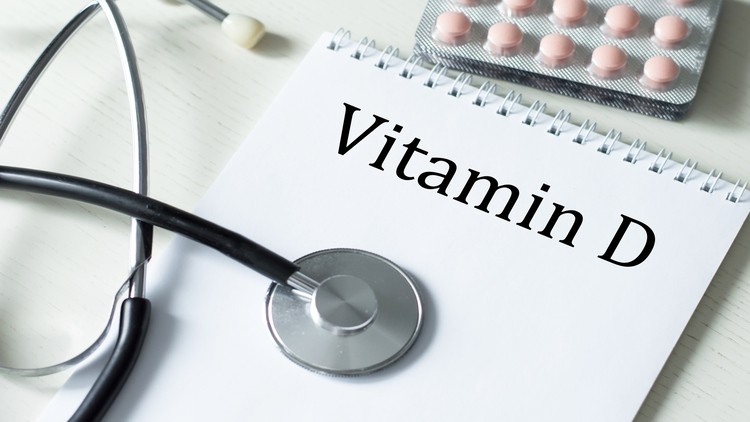
Parkinson’s Disease and nutrition. Parkinson’s disease is a chronic and progressive neurological disorder characterized by the loss of the brain’s dopamine-producing cells that control movement. Symptoms include tremors, muscle stiffness, slow movements and balance problems. As the disease progresses, symptoms may become severe and make daily living activities difficult.
Parkinson’s Disease and the Importance of Nutrition
Proper nutrition in Parkinson’s disease plays an important role in managing symptoms and improving patients’ quality of life. Nutrition not only provides the nutrients the body needs, but can also help slow the progression of the disease and relieve some symptoms. Choosing the right foods can contribute to maintaining energy levels, supporting gut health and improving overall brain function.
Foods That May Relieve Symptoms
When dealing with Parkinson’s disease, some foods may help relieve symptoms. Here are some types of foods that may be beneficial for Parkinson’s patients:
Antioxidants
Antioxidants are compounds that help prevent cellular damage caused by free radicals. In Parkinson’s disease, oxidative stress is thought to play a role in damage to dopamine cells. Therefore, consuming foods rich in antioxidants may be beneficial:
- Fruits: Fruits such as blueberries, strawberries and blackberries are known for their high antioxidant content.
- Vegetables: Green leafy vegetables such as spinach, broccoli and cabbage are rich in antioxidants.
- Walnuts and Hazelnuts: Walnuts and hazelnuts, known for their antioxidant effects, also provide healthy fats.
Omega-3 Fatty Acids
Omega-3 fatty acids are known as fats that support brain health and reduce inflammation. It may help protect brain cells in Parkinson’s disease by:
- Oily Fish: Fish such as salmon, sardine and mackerel are rich in omega-3.
- Flaxseed: Flaxseed, a source of Omega-3, can be added to smoothies or salads.
- Chia Seeds: Chia seeds are full of omega-3 fatty acids and can be used in a variety of recipes.
Fiber Foods
Fibrous foods help the digestive system function regularly and alleviate problems commonly seen in Parkinson’s patients, such as constipation:
- Whole Grains: Oats, brown rice, whole wheat products contain high fiber.
- Fruits and Vegetables: Foods such as apples, pears, carrots and peas are good sources of fiber.
- Legumes: Legumes such as lentils, chickpeas and beans provide both fiber and protein.
Vitamin D and Calcium
Vitamin D and calcium are important to maintain bone health and support muscle functions. It may help reduce balance problems and the risk of falls in Parkinson’s patients:
- Milk and Dairy Products: Foods such as yoghurt, cheese and milk are good sources of calcium.
- Green Leafy Vegetables: Vegetables such as spinach and kale contain both calcium and vitamin D.
- Supplements: In cases where sunlight exposure is limited, vitamin D supplements may be considered.
Probiotics
Probiotics are beneficial bacteria that improve digestion by supporting gut health. It may help regulate bowel functions in Parkinson’s patients:
- Yogurt: Yogurt, which contains live cultures, is a common source of probiotics.
- Kefir: Kefir, a fermented drink, contains rich probiotics.
- Sauerkraut and Kimchi: Fermented vegetables provide probiotics that support gut health.
Foods to Avoid
Parkinson’s patients can relieve their symptoms by avoiding certain foods. These foods include:
- High Sugar Foods: Processed sugars can cause blood sugar spikes and negatively impact energy.
- Saturated and Trans Fats: Fried foods and processed snacks can increase inflammation and have negative effects on overall health.
- High Salt Foods: Excessive salt consumption can increase blood pressure and lead to cardiovascular problems.
- Alcohol: Alcohol consumption can affect the nervous system and worsen Parkinson’s symptoms.
Nutrition Tips for Parkinson’s Disease
Optimizing the diet for Parkinson’s patients can help manage symptoms. Here are some practical nutrition tips:
- Small and Frequent Meals: It is beneficial to consume small and frequent meals to keep energy levels stable.
- Increasing Water Consumption: Drinking adequate amounts of water improves digestion and supports overall health.
- Balanced and Diverse Diet: A balanced diet that includes different food groups provides essential vitamins and minerals.
- Planning Protein Intake: It is important to spread protein intake over different times of the day as it can affect the absorption of medications.
- Focus on Brain Health: Foods that support mental health and improve brain functions should be prioritized.
Conclusion
Nutrition can make a big difference in the fight against Parkinson’s disease. Certain foods, such as antioxidants, omega-3 fatty acids, fiber, vitamin D, calcium, and probiotics, may help relieve symptoms and support overall health. It is also important to avoid foods that are high in sugar, saturated fat and high in salt. A balanced, varied and brain-healthy diet can improve the quality of life of Parkinson’s patients.
This article has been prepared to provide a comprehensive guide to Parkinson’s disease and nutrition. If you need more information on anything, please let us know in the comments.
Contents
- What is Parkinson’s Disease?
- Parkinson’s Disease and the Importance of Nutrition
- Foods That May Relieve Symptoms
- Foods to Avoid
- Nutrition Tips for Parkinson’s Disease
- Conclusion